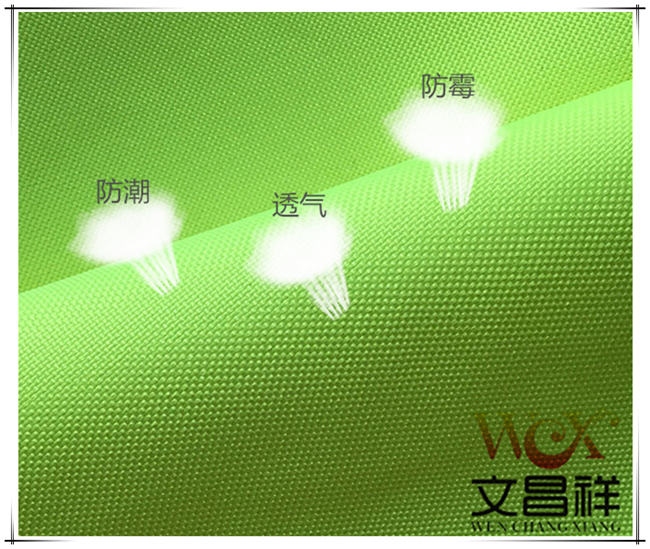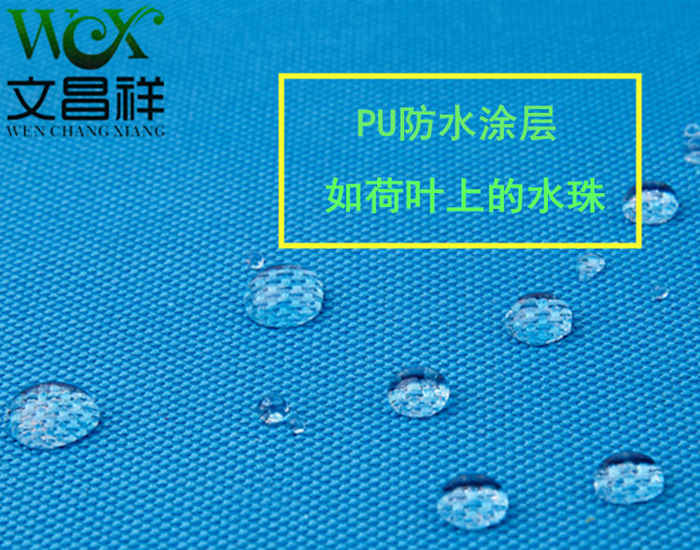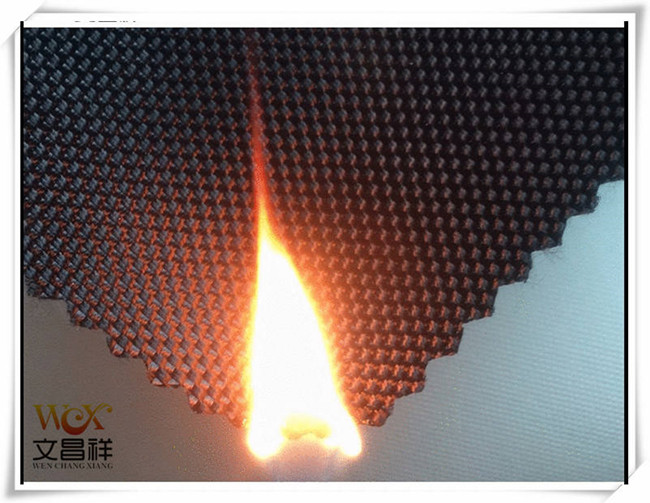Compared with sizing-free polyester fabrics or knitted fabrics, the dyeing and finishing process of sizing polyester fabrics takes a long time, and most of the additives used in spinning and weaving have been removed. However, small amounts of the auxiliaries used during dyeing and post-processing may still remain in the fabric and the free water it carries. In addition, although it has been hot washed twice and pickled once after desizing, a small amount of caustic soda used during desizing may still remain inside the single fibers of the polyester fiber and even inside the amorphous zone.

300D polyester fabric
Similarly, during the stacking process before the fabric is finalized, free water can carry residual alkali and additives and flow into the reciprocating folding process. at. At this time, the pH value of the reciprocating folds is significantly higher than that of other parts of the fabric. This has also been confirmed by using a universal indicator, and the concentration of the additive is also greater than that of other parts. During the high-temperature setting process of fabrics, polyester macromolecular chains move violently, and OH- ions can instantly penetrate into the amorphous zone with water molecules to react with disperse dyes.

600D polyester fabric
Disperse dyes are relatively stable in acidic conditions (pH value 5). In alkaline conditions, disperse dyes generally have the following two effects: : Alkaline conditions can dissociate some dye structures. This reaction is reversible, and the undissociated structure will reappear in a neutral or slightly acidic structure. Alkali can hydrolyze certain disperse dyes. After hydrolysis, the dyes not only change their color, but also have different affinities. Therefore, alkali can permanently damage some disperse dyes.
Therefore, the color change at the reciprocating folds of sized polyester fabrics is caused by excessive pH value, hydrolysis or dissociation of disperse dyes, and the combined effect of thermal migration of disperse dyes by additives.

Flame-retardant polyester fabric
Main textile products: 300D Oxford cloth, 420D Oxford cloth, 600D Oxford cloth, 1680D Oxford cloth and other polyester fabrics , if you need to know more, please consult customer service or call: 400-8380917
Some of the contents of some of our company’s articles come from the Internet. If there is any infringement, please contact us and we will delete it as soon as possible.
</p






